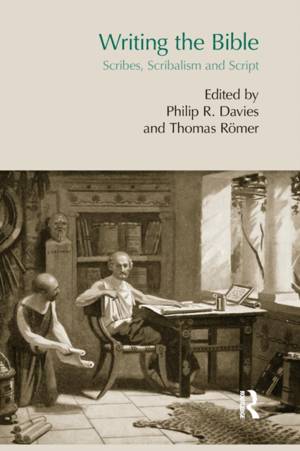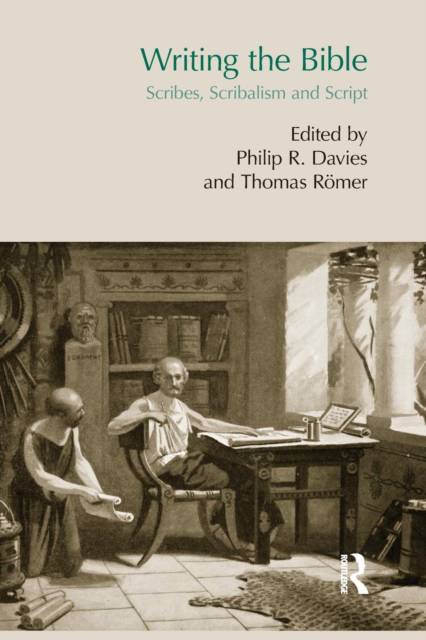
- Afhalen na 1 uur in een winkel met voorraad
- Gratis thuislevering in België vanaf € 30
- Ruim aanbod met 7 miljoen producten
- Afhalen na 1 uur in een winkel met voorraad
- Gratis thuislevering in België vanaf € 30
- Ruim aanbod met 7 miljoen producten
Zoeken
€ 97,95
+ 195 punten
Uitvoering
Omschrijving
For many years it has been recognized that the key to explaining the production of the Bible lies in understanding the profession, the practice and the mentality of scribes in the ancient Near East, classical Greece and the Greco-Roman world. In many ways, however, the production of the Jewish literary canon, while reflecting wider practice, constitutes an exception because of its religious function as the written "word of God", leading in turn to the veneration of scrolls as sacred and even cultic objects in themselves. "Writing the Bible" brings together the wide-ranging study of all major aspects of ancient writing and writers. The essays cover the dissemination of texts, book and canon formation, and the social and political effects of writing and of textual knowledge. Central issues discussed include the status of the scribe, the nature of 'authorship', the relationship between copying and redacting, and the relative status of oral and written knowledge. The writers examined include Ilimilku of Ugarit, the scribes of ancient Greece, Ben Sira, Galen, Origen and the author of Pseudo-Clement.
Specificaties
Betrokkenen
- Auteur(s):
- Uitgeverij:
Inhoud
- Aantal bladzijden:
- 224
- Taal:
- Engels
Eigenschappen
- Productcode (EAN):
- 9781138661042
- Verschijningsdatum:
- 21/01/2016
- Uitvoering:
- Paperback
- Formaat:
- Trade paperback (VS)
- Afmetingen:
- 156 mm x 234 mm
- Gewicht:
- 317 g

Alleen bij Standaard Boekhandel
+ 195 punten op je klantenkaart van Standaard Boekhandel
Beoordelingen
We publiceren alleen reviews die voldoen aan de voorwaarden voor reviews. Bekijk onze voorwaarden voor reviews.











